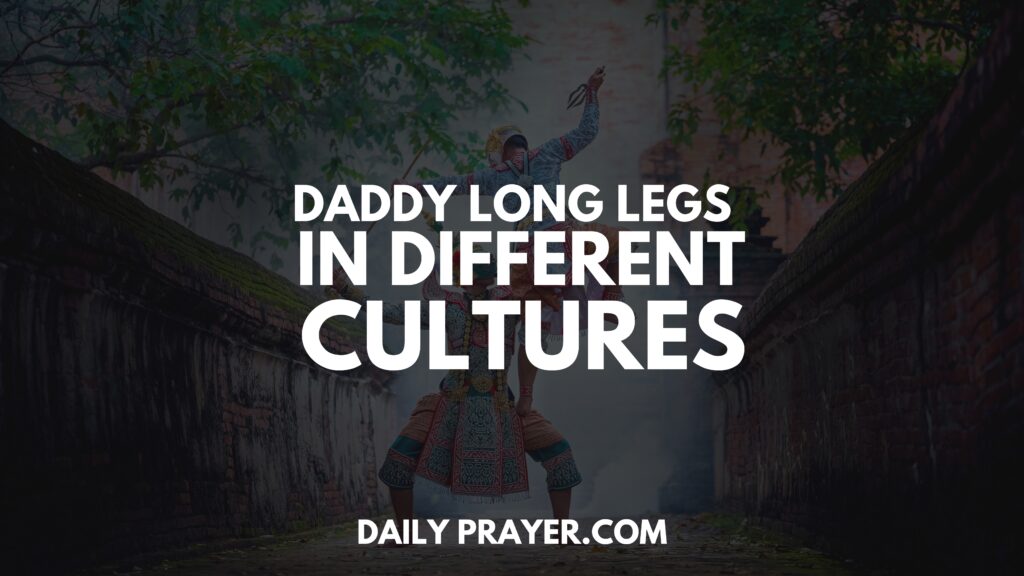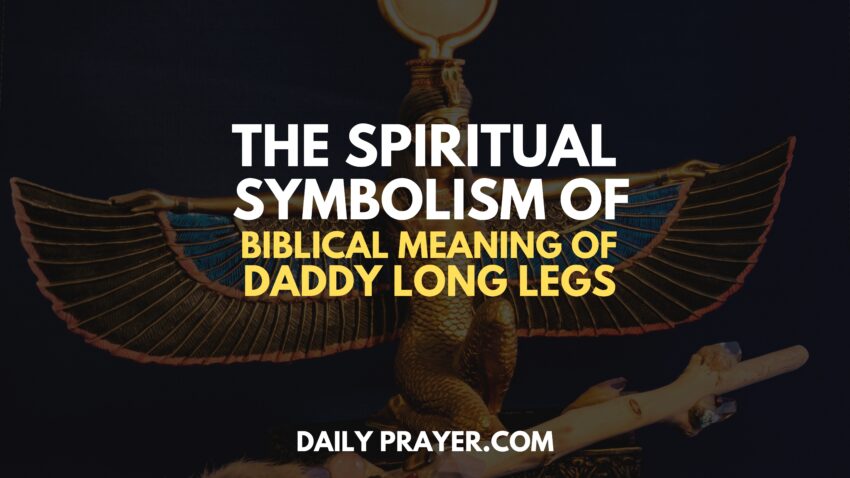The Daddy Long Legs – A Closer Look
The Natural Characteristics
The Daddy Long Legs in the Bible, scientifically known as ‘Opiliones,’ are not actually spiders but belong to a distinct arachnid order.
They are characterized by their incredibly long and delicate legs, which can sometimes be up to four times the length of their bodies.
These long, spindly legs make them appear fragile and vulnerable, despite their hard exoskeleton.
The Misconceptions
Contrary to popular belief, Daddy Long Legs are not venomous, and the urban legend that they possess the most potent venom in the world, yet cannot harm humans, is just that – a legend.
While they do produce venom, their fangs are too short to penetrate human skin, making them harmless to us.
In the Bible
The Daddy Long Legs is mentioned in the Bible, albeit indirectly. We find references to these intriguing creatures in the book of Proverbs, a collection of wise sayings that provide insight into the world’s wonders.
Daddy Long Legs in the Bible
The Proverbs Connection
In the book of Proverbs (30:28), it is written, “The spider skillfully grasps with its hands, and it is in kings’ palaces.” In this verse, ‘spider’ is believed to refer to the Daddy Long Legs, and it is associated with wisdom and skillfulness. This reference suggests that even the tiniest of creatures have a role in the grand tapestry of life.
Symbolism of Wisdom
The mention of the Daddy Long Legs in Proverbs is often interpreted as a symbol of wisdom and resourcefulness. Just as these creatures skillfully grasp things with their legs, wisdom allows one to handle life’s challenges with dexterity. It emphasizes the importance of using one’s abilities, no matter how small they may seem.
The Divine Plan
Some interpretations also suggest that Daddy Long Legs’ presence in palaces signifies the divine plan at work, where even the most minor and seemingly insignificant creatures have a role in the grand scheme of things. This notion reinforces the idea that every living being has a purpose in the elegant design of the universe.
Daddy Long Legs in Different Cultures

Native American Beliefs
In Native American folklore, Daddy Long Legs is often seen as a symbol of protection and good luck. They believe encountering a Daddy Long Leg can bring positive energy and guardian spirits into one’s life. It is a reminder of the interconnectedness of all living things.
Celtic Mythology
In Celtic mythology, Daddy Long Legs is associated with harvest and the changing of seasons. They are seen as a sign of the transition from one phase of life to another, much like the changing seasons. This symbolism illustrates the cyclical nature of life and the importance of adaptation.
Asian Symbolism
In some Asian cultures, Daddy Long Legs is connected to longevity and the pursuit of knowledge. They are revered for their delicate and graceful nature, symbolizing the beauty of knowledge and the enduring quest for wisdom. Their presence serves as a reminder of the value of lifelong learning.
Conclusion
The Daddy Long Legs, with its unusual appearance and presence in the Bible and various cultural beliefs, carry deep spiritual symbolism. It reminds us that wisdom, resourcefulness, and the divine plan are integral parts of our existence, even in the smallest of creatures. Next time you encounter a Daddy Long Leg, remember that it might be a messenger of ancient wisdom and a symbol of the interconnectedness of all life.
FAQs
Yes, Daddy Long Legs are indirectly mentioned in the Bible, specifically in the book of Proverbs, underscoring their significance.
In Native American folklore, Daddy Long Legs symbolizes protection and good luck, reflecting the belief in the positive energy they bring.
Yes, in some Asian cultures, Daddy Long Legs represent longevity and the pursuit of knowledge, highlighting the value of wisdom and continuous learning.
The mention of Daddy Long Legs in the Bible is often interpreted as a symbol of wisdom and resourcefulness, emphasizing the importance of using one’s abilities.
No, Daddy Long Legs are not venomous to humans due to their short fangs, dispelling the common misconception surrounding them.
